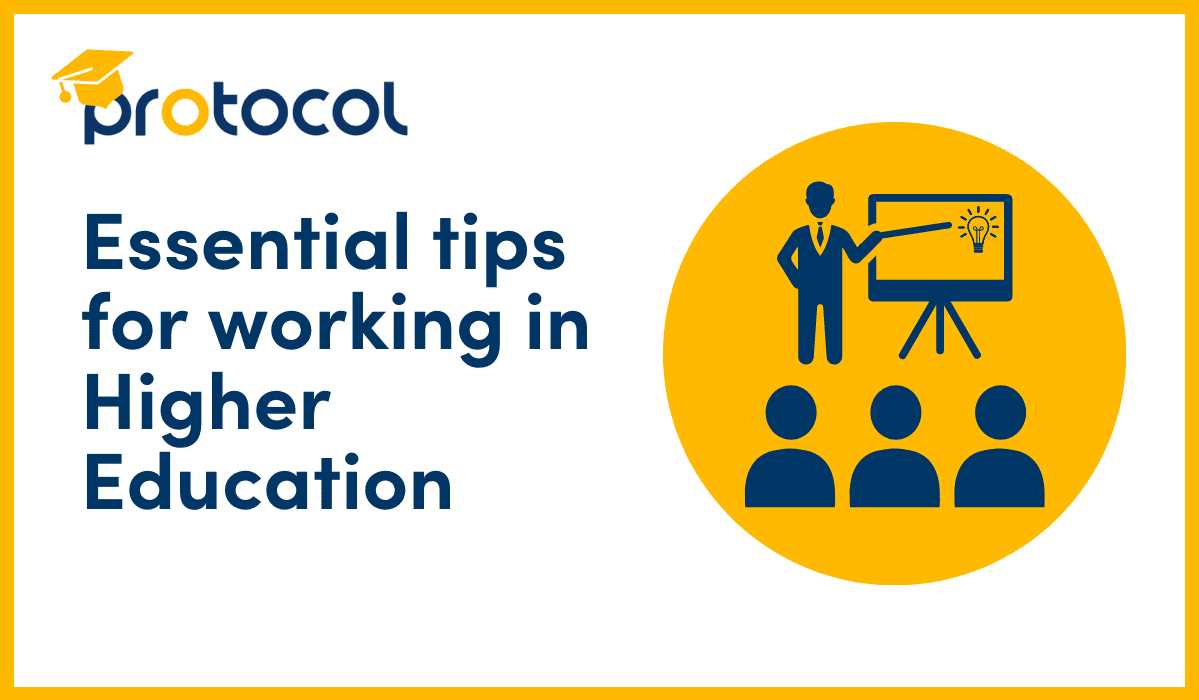Working in Higher Education is great for individuals who enjoy making a long-lasting difference in students’ lives. The industry is evolving and there is an increasing demand for leaders equipped with the skills and enthusiasm to effectively and positively impact student experiences. Whether you’re transitioning into the sector or trying to advance further in your career, we have written some tips that are important no matter the role or department:
Pay attention to detail
When applying to Higher Education institutions it’s important you are meticulous with your application and avoid any mistakes on cover letters, CVs and writing samples. It’s essential to make a positive first impression on the hiring manager, showing that you take care and pride in your work.
Preparing for your interview is also key, you may be given a task to complete, or asked to prepare a micro-teach on your specialist subject area. It’s vital that you follow these instructions carefully, allowing you to showcase your teaching skills to the highest standard. You may also be asked questions about the local community, the University’s history, or programmes they currently offer or specialise in – it’s worth doing some research on any key information you think may come up on the day, and remember you can take notes in with you!
When it comes to the day of the interview, ensure you’re well-prepared by making yourself familiar with the location and allowing yourself plenty of time to arrive. This will show you’re punctual, organised and get the interview off to a positive start. No one wants to be arriving hot, flustered, and late!
Communicate positively
Studying can be stressful to some individuals and it is key that you know how to adapt your approach in order to communicate clearly and empathetically. It establishes a positive and supportive environment and engages learners effectively. Students may need comfort, support, or guidance planning their next steps, so it’s imperative that you communicate positively, allowing you to build meaningful connections and empowering them to achieve.
Practice self-care
Working in Higher Education isn’t easy, and your own self-care shouldn’t be an emergency response plan. It’s good to find activities that feel achievable and that can be easily integrated into your lifestyle. Many HE professionals often have the tendency to focus more on others, sometimes at the expense of themselves. Jackie Zeller, licensed psychologist says that “self-care is a very personal thing and what works for one person, might not work for others” so don’t feel like you have to conform to the ‘normal’ ideal of self-care, which can include anything from having a mindful cup of tea to taking a walk outside or catching up with friends.
Be as forgiving to yourself as you would be to your students.
Network
Networking should be on the priority list of your professional goals, the Higher Education community is open and happy to give back by helping others to achieve. It’s recommended to reach out to professionals at nearby institutions to learn more about their roles and responsibilities.
You should also read publications such as the Chronicle of Higher Education, Inside Higher Ed, and EdSurge.
Are you looking to make the switch to a Higher Education teaching role, or are you already in the sector and seeking that next challenge? Get in touch with our specialist HE recruitment team today to discuss our current opportunities.

